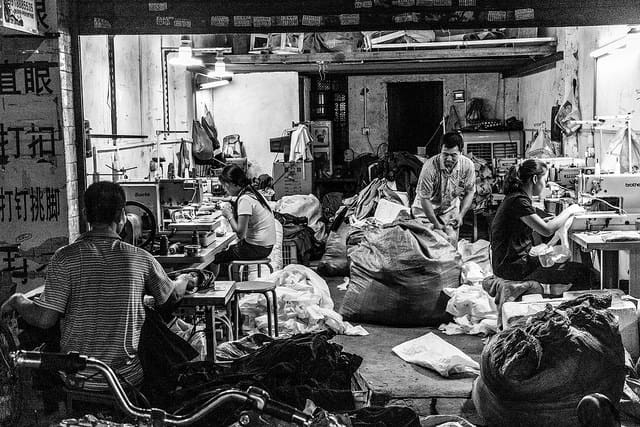Have you seen the new piece from Huffington Post Highline, The Myth of the Ethical Shopper? It’s a pretty fierce condemnation of the way we try to make social change happen in the world. For years, our model of creating social change, especially as it relates to consumer products, has been name-and-shame. It has been somewhat effective, but not nearly to the level we hoped it would.
We’ve scolded Nike, Walmart, H&M, Coca-Cola, and plenty more for their absolutely abysmal human and labor rights violations. In April, John Oliver looked at the horrifying history of workplace abuse in several of these companies. It would be nice if we could pretend that these issues were a problem of the 90s. After all, that’s when we all took great offense at the clothes we were wearing. But it’s an issue that has not only persisted, but has become worse.
While we would like to think that our shift in shopping habits has drastically changed the market, it hasn’t. We have instead become aware of increasingly horrific circumstances. Many of the countries that make our consumer products also have high rates of slavery and human trafficking. People seeking to escape poverty instead find themselves entrenched in outright slavery.
I’m certainly not saying that we have no power and therefore should just buy whatever we want. I absolutely support efforts to buy items with traceable, verifiable labor standards. But as the HuffPo piece states, we cannot “shop ourselves into a better world. Advocating for boring stuff like complaint mechanisms and formalized labor contracts is nowhere near as satisfying as buying a pair of Fair Trade sandals or whatever. But that’s how the hard work of development actually gets done: Not by imploring people to buy better, but by giving them no other option.”
Back in April, I wrote a piece on the Trans-Pacific Partnership. This massive trade deal includes some of the worst human and labor rights offenders in the world: Malaysia, Vietnam, and provisions to include others like Indonesia and Bangladesh. Fundamentally, it affirms our desire to shop for change rather than truly challenge ourselves. It supports our current model of always driving down costs and consuming more. This is an option we can no longer choose.
In Laudato Si, Francis states, “Once more, we need to reject a magical conception of the market, which would suggest that problems can be solved simply by an increase in the profits of companies or individuals.” [Para. 190] Our task seems more daunting if we cannot simply buy change. Our faith, especially as expressed in the latest encyclical, makes it abundantly clear that we must seek a different solution. It will require not just a change of spending, but a change of attitude, lifestyle, and heart. While challenging, we must know that not only are people around the world depending on us taking action, but they are standing alongside us.
******
Cover image Our Little Family Sweatshop courtesy Flickr CC user Danijel James, found here.


